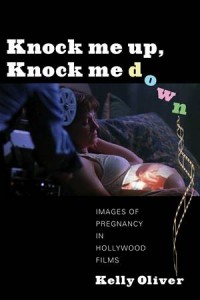The image of a heavily pregnant woman, once considered ugly and indecent, is now common to Hollywood film. No longer is pregnancy a repulsive of shameful condition, but an attractive attribute, often enhancing the romantic or comedic storyline of a female protagonist. Kelly Oliver investigates this curious shift and its reflection of changing attitudes toward women?s roles in reproduction and the family. Yet not all representations signify progress. Oliver finds that in many pregnancy films, whether romantic, comedic, or horrific, our anxieties over modern reproductive practices and technologies are made manifest, and in some instances perpetuate conventions that curtail women?s freedom.From the mid-nineteenth to the late-twentieth century, pregnancy was treated as a medical condition to be hidden from view. Even prior to the medicalization of pregnancy, the pregnant body was considered a private affair. Now sexy and spectacular, pregnancy has discovered new meaning and potency under the Hollywood gaze, reorienting our understanding of conception, sexual attraction, birth, motherhood, and the making of family. Reading such films as Where the Heart Is (2000), Riding in Cars with Boys (2001), Palindromes (2004), Saved! (2004), Quinceañera (2006), Children of Men (2006), Knocked Up (2007), Juno (2007), Baby Mama (2008), Away We Go (2009), Precious (2009), The Back-up Plan (2010), Due Date (2010), and Twilight: Breaking Dawn (2011), exploring pregnancy as a vehicle for romance, a political issue of choice,? a representation of the hosting of others,? a prism for fears of miscegenation, and a screen for modern technological anxieties, Knock Me Up, Knock Me Down is the only book devoted to the portrayal of pregnant women in society and film and its implications for women?s social, sexual, and political future.
Knock me up, knock me down
Sobre
Talvez você seja redirecionado para outro site












